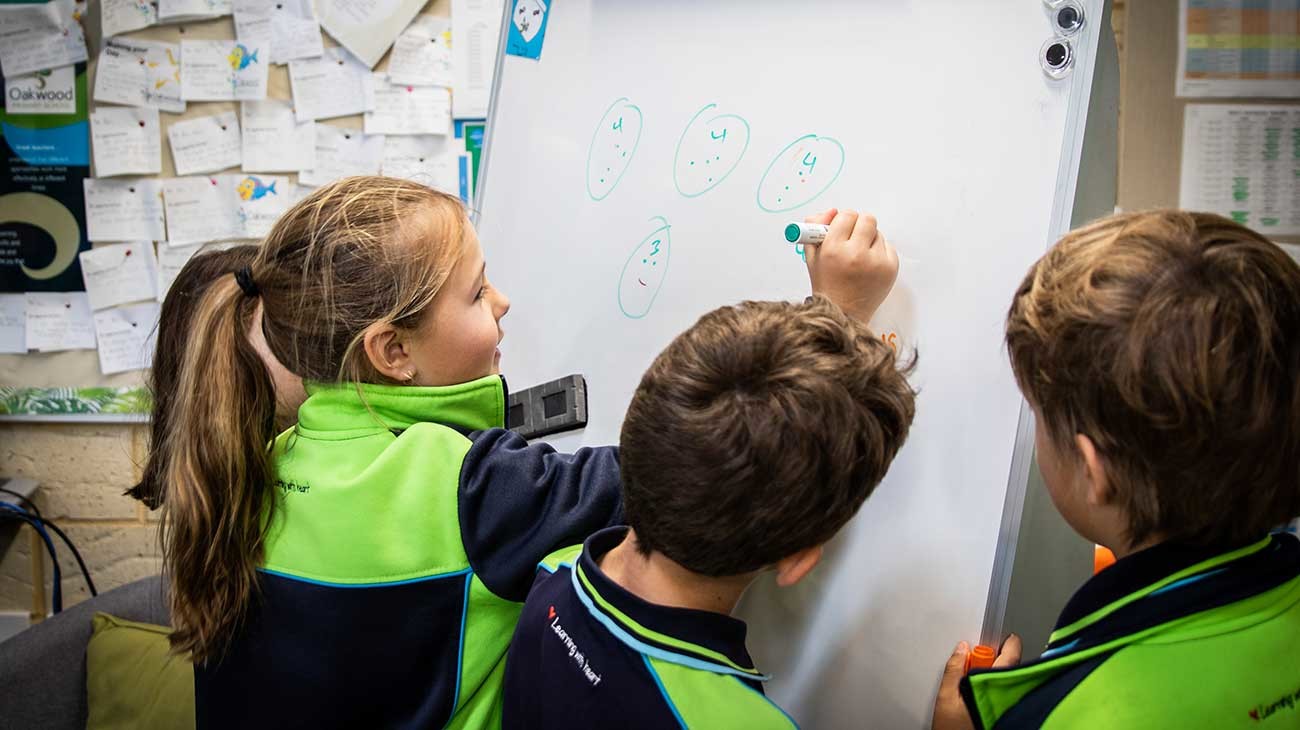Posted Friday, 9 January 2026
Scitech gets Ah! Rated for Fringe
Scitech is returning to FRINGE WORLD Perth with a strictly 18+ show.
Martin reflects on the value of focusing on the thinking process that leads to a solution.

Hi!
I’m Martin Major and I teach a wonderful class of Year 3 students at Saint Joseph’s Catholic Primary School in Pinjarra. I have been teaching for almost 30 years, with over half of this time spent in Leadership positions. However, early in 2019, I found myself back in the classroom. My first “own” classroom in 18 years!!! How things have changed. Sure, in those 18 years, I certainly had exposure to many different classes and year levels, but actually being back in the classroom felt like I was a beginner teacher again. But it also felt like home.
I do have a love of Mathematics, and I enjoy teaching Maths, but in the 18 years I have spent out of the classroom, Maths teaching, learning and curriculum has changed markedly. I recognise that in the 1980’s – 2000’s, the focus of Mathematics seemed to be more about the product (correct solution) than the process (how students got there).
Whereas, I now believe that there is, and should be, more of a focus on the student’s thinking, and how they got the answer or how they solved the problem, as opposed to whether they have the correct answer or not.
Being involved in the Alcoa Champions of Maths Program has taught me many new innovative, and some old school teaching practices, which I strive to include in my daily lessons across all curriculum areas, not just Maths and Problem Solving.
Simple things such as randomly generated groups, random questioning techniques, talk moves and vertical erasable workspaces are all tools which now have their place in my classroom. They add to the educational experience of not only the students, but also myself and the teachers and adults that enter the room.
In my old teaching phase (1992 – 2000), I would have focussed solely on whether students had solved the problem I had assigned them. I now find myself looking more into the thinking behind the solutions and the talk that takes place during the working phase.
Thinking about Enabling and Extending prompts now take up a good part of my own lesson planning process. The value of knowing the students and thinking about what their responses might be, has certainly added a new level to my planning and allows the teaching and learning to go deeper.
My focus on Problem Solving has changed due to participating in this program. I no longer focus on the product, or the solution that the students come up with. It is now more important to me that I focus on the thinking behind the process the students have used to achieve their solution. It does not matter that their solution may be incorrect.
The classroom discussion that comes from incorrect solutions is often just as fruitful as the discussion that comes out of the correct solution. Talk moves such as “Agree/Disagree”, leading to “Challenge Me”, and/or “Turn and Talk” give the students more than ample opportunity to discuss their learning, and to hear the learning of others.
The classroom has become a safe environment for students to talk about their thinking. This has led to many positive discussions about how the children have solved the problem, rather than how or whether they arrived at the correct solution. It has shown the students that there are many different ways of solving the same problem, and that their way is not necessarily “better or worse” than someone else’s way.
Following the presentation that my colleague and I made at a recent staff meeting, everyone was keen to try and implement at least one idea that we had shared. Our goal is to design and implement a school wide problem-solving strategy that would see such things as group norms and specific problem-solving strategies implemented across the school, beginning in the early years.
The goal is for us to work on this over the course of Term 4, ready for trial in 2021.
Would you like to continue a discussion on this topic with other educators? Join our Facebook group!
If you are interested in joining the Alcoa Maths Enrichment Program please fill out the enquiry form below and a Scitech representative will be in touch with you.
Upon clicking the "Book Now" or "Buy Gift Card" buttons a new window will open prompting contact information and payment details.